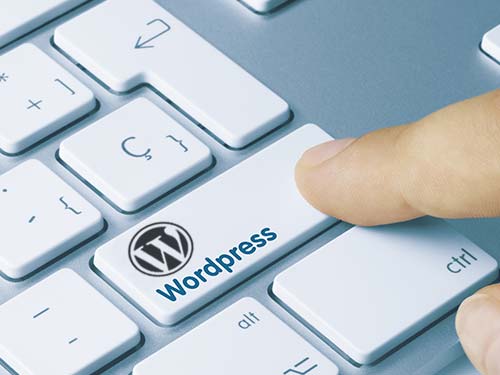With such a bewildering array of marketing options — digital and otherwise — we like to focus blog posts on actionable intel. Whether it’s a staff-written how-to or a link to somebody else’s smart idea, it’s news you can use in upping your marketing communications game.
September 4, 2017
The proliferation of WordPress-based websites brings up a healthy discussion about the pros and cons of the easy-to-build approach versus a true custom site.
 Like many aspects of web development, and digital marketing in general, there are many complexities to the template vs. custom comparison that we won’t try to address in one blog post. But there are some basic factors to keep in mind when deciding which type of site is right for a given situation.
Like many aspects of web development, and digital marketing in general, there are many complexities to the template vs. custom comparison that we won’t try to address in one blog post. But there are some basic factors to keep in mind when deciding which type of site is right for a given situation.
First, some geek-talk: WordPress is an open source Content Management System (CMS) based on PHP scripting language and MySQL database management system. As such, building a WordPress site requires use of any number of plugins to create a site, with other aspects detailed below.
Wordpress sites can be the right solution for many situations — but not a great fit for others. Here are some things to consider before creating a site using WordPress.
1. WordPress is free. No complaints there.
2. WordPress is easy to use. Another obvious benefits — and it’s true for both the site builder and the site manager/user.
3. WordPress is popular. Lots of people use it, somewhere in the neighborhood of 65% of all CMS-driven sites are Wordpress.
4. WordPress has a large and active community. This community creates lots of plugins which makes it easy to add all sorts of functionality to a site.
5. WordPress makes hard things easy. WordPress provides a complete built-in CMS, with the ability to add user accounts and give those users the ability to manage every single piece of content on the site without much effort on the developer’s part.
1. WordPress has hidden costs. WordPress HAS to be updated regularly. As an open source CMS, the popularity of WordPress makes it a prime target for hacking. Once a vulnerability is discovered, the community is quick to make a patch available to fix it — but it is up to the developer or site manager to install it. To further complicate things, plugins are also susceptible to hackers — and those fixes are not always quickly communicated. These upgrades take time to implement, and they sometimes conflict with plugins previously installed. All this time spent keeping up with Wordpress news (and tracking plugin hacks), downloading the fix and troubleshooting a site after it breaks translates into money. And that doesn’t count the cost of a broken site due to an unresolved issue.
2. WordPress makes easy things hard. WordPress works best when the developer doesn’t touch the internal code. If you need to add a custom piece of functionality you have to be able to deal with the layer of complexity WordPress adds to your site. There may come a time when functionality is needed for which there is no standard plugin. You have to create something new, and add it to WordPress — be prepared to spend a LOT more time than you would on a custom site. Once a custom piece of code is working correctly it will become something to pay close attention to when updating WordPress.
3. WordPress sites tend to look the same. The availability of templates is the main way using WordPress saves money — but they all have a “sameness” which may work against a strong brand identity. What's worse, someone else — like a competitor — could grab the same template you used. It’s sort of like why royalty-free stock photography is risky. The price is low, but the cost can be high when the same image is used by different advertisers, often with conflicting messages. You could hire a designer to change up the template — a complicated task even if it is “just a few small tweaks” — which increases the costs and defeats the purpose of the low-budget approach.
So the short answer to whether a WordPress site is the right solution is…it depends. For lower budgets and more limited functionality, they can be the right choice. For more complex sites or where brand identity is critical, a custom site can often be more cost effective in the long run. And no matter which approach you take, remember that the best site is only as effective as it SEO performance. Both WordPress and custom sites can address that need, but that’s a topic we’ll explore later. For more digital marketing tips visit our blog at https://www.bakerwoodward.com/